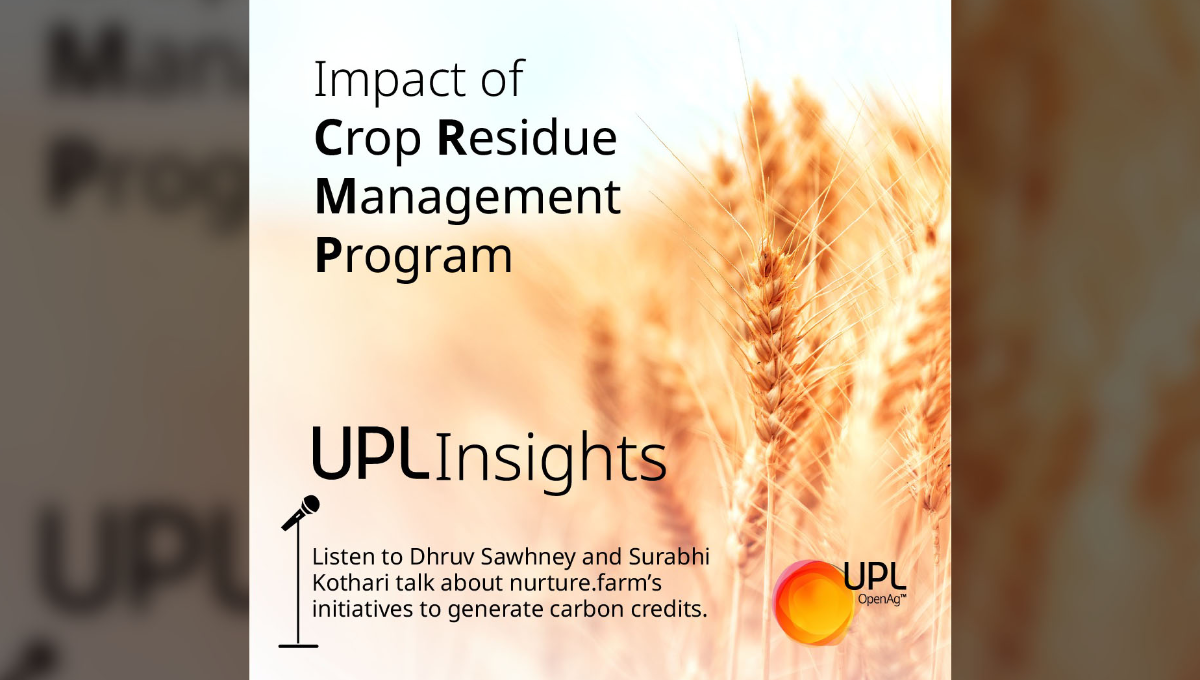Every year, 5.7 million acres of rice paddy acres are deliberately burnt by farmers in Punjab and Haryana as a cheap, quick, and effective method of clearing straw and other residue from mechanically harvested fields in the short window between the harvesting of rice and planting of wheat crop. Despite the downsides to this practice – including greenhouse gas emissions, the degradation of soil nutrients, and the loss of other flora and fauna – it remains widespread.
nurture.farm, our Indian ag-tech subsidiary, has recently led the largest ever program to eliminate stubble burning in India, providing over 25,000 farmers with the tools, technologies, and training they needed to perform regenerative agricultural practices. With over 92% of the 420,000 acreage enrolled saved from being burnt, the program has had a positive impact on the climate, public health outcomes, famer livelihoods, soil health, and rural employment opportunities in India.
On this episode of UPL Insights, Surabhi Kothari is joined by Dhruv Sawhney (COO and Business Head of nurture.farm) to discuss the impact of the Crop Residue Management Program, and nurture.farm’s exciting plans to generate carbon credits, scale their activities across India, and take the company’s comprehensive solution set to new markets.
